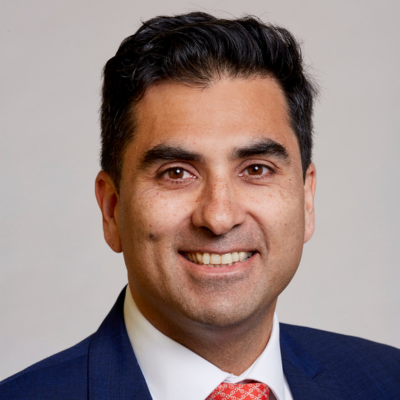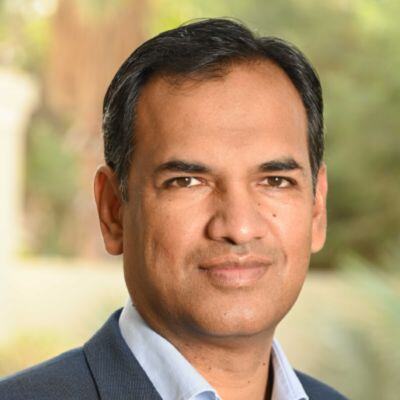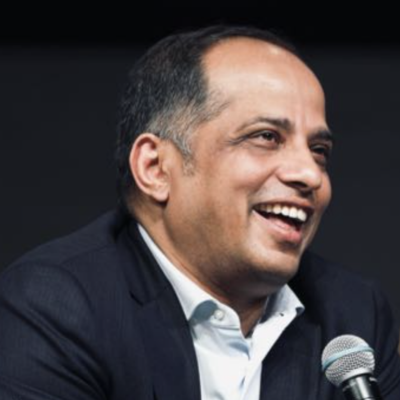Agenda: Digital Assets
This roundtable reflects Elevandi’s commitment to developing the infrastructure to support the adoption of new technologies.
Permissionless blockchains presents multiple opportunities for the pooling of global liquidity. The inherent traceability of all records offer significant cybersecurity enhancements over traditional systems by prevent false transactions. Moreover, continuously verifiable point-in-time snapshots of the distributed ledger offers added resilience to ensure business continuity.
In this industry-focused roundtable operating under the theme of Decoding Digital Assets and Payments, we invite private sector discussants to consider the pathways to implementation of permissionless blockchains by laying down all cards on the table. Speakers are invited to actively challenge the supposed benefits of permissionless blockchains with their inputs, discuss trade-offs, and address the perceived risks surrounding the technology.
This session seeks to lay the groundwork for later dialogues on the applications of permissionless blockchain in the form of structured products and collateral settlements.
This is one of two discussions surrounding permissionless/public blockchains in the financial services at the Insights Forum. Attendees who wish to familiarise themselves with the topic may refer to the reference materials below.
- Public blockchain as a transfer infrastructure in regulated sectors
- Plenary Address by Ravi Menon: State of Global Finance & Technology | JFF 2024}', 13='{type=option, value={id=1, name='Decoding Digital Assets and Payments', order=0, label='Decoding Digital Assets and Payments'}}', 15='{type=list, value=[{id=166926454948, name='Ashley Lannquist'}, {id=168564435058, name='Bruno Batavia'}, {id=169052905074, name='Caroline Butler'}, {id=166919171869, name='Lauren Belive'}, {id=169398977561, name='Mo Shaikh'}, {id=166919172362, name='Naveen Mallela'}, {id=167566559405, name='Nilmini Rubin'}, {id=170381035636, name='Sabih Behzad'}, {id=166919171874, name='Sergey Nazarov'}, {id=169398977585, name='Seth Ginns'}, {id=169398977597, name='Stefan Grasmann'}, {id=167566559408, name='Varun Paul'}]}', 16='{type=list, value=[{id=169396664424, name='Pradyumna Agrawal'}]}', 17='{type=list, value=[]}', 18='{type=option, value={id=4, name='Roundtable Room 3 (Level 3)', order=3, label='Roundtable Room 3 (Level 3)'}}'}, {id=166919172437, createdAt=1715265350866, updatedAt=1731845737115, path='agnd1056-foreign-exchange-digital-money-and-the-future-of-fx', name='Foreign exchange: Digital money and the future of FX', 2='{type=string, value=Foreign exchange: Digital money and the future of FX}', 3='{type=string, value=AGND1056}', 4='{type=number, value=1719919800000}', 5='{type=number, value=1719925200000}', 6='{type=option, value={id=4, name='Roundtable', order=2, label='Roundtable'}}', 7='{type=string, value=Foreign exchange: Digital money and the future of FX Alan Lim, Director & Head, FinTech Infrastructure Office, Monetary Authority of Singapore, Alexander Wehrli, Advisor for Technology and Data Science, Money Market and Foreign Exchange, Swiss National Bank, Professor Angelo Ranaldo, Full Professor, University of Basel & Chair, Swiss Finance Institute, Claudine Hurman, Director of Innovation and Financial Market Infrastructures, Banque de France, Dr Darko Hajdukovic, Head of New and Private Markets, Deputy Head of Digital and Securities Markets , London Stock Exchange Group, Dr Gordon Liao, Chief Economist, Circle Internet Financial, Mike Robertson , Chief Executive Officer, AbbeyCross, Nidhi Shanbhag, Head of Business Development, Uniswap Labs, Qaiser Anwarudin, Director, Payment Services Policy Department, Bank Negara Malaysia, Sharon Donnery, Deputy Governor, Central Bank of Ireland, Zou Xiaonan, Head of Digital Assets, Group Treasury, UBS Maha El Dimachki, Centre Head - Singapore, BIS Innovation Hub, Raphael Auer, Centre Head of Eurosystem Centre, Bank for International Settlements }', 8='{type=number, value=1}', 12='{type=string, value=
This roundtable considers the work that the BIS Innovation Hub Eurosystem Centre, Singapore Centre, together with the central banks of France, Italy, Malaysia, and Singapore are pursuing to determine how FX will look like in a world of digital money.
The discussion will support this work, with the objective to:
- Promote understanding and share insights on the integration of digital currencies in the FX market.
- Identify challenges and explore opportunities presented by the intersection of FX, DeFi, and wholesale CBDCs.
- Encourage collaboration among stakeholders to shape a forward-looking FX framework that accommodates digital innovations.
This roundtable is closely tied to the work on Project Rialto, which aims to improving instant cross-border payments using wholesale CBDC settlement, details of which are available in the agenda brief. Operating under the theme of Decoding Digital Assets and Payments, this roundtable will explore the inefficiencies in today's foreign exchange markets, and the various initiatives that are being pursued to address these.
Attendees who wish to familiarise themselves with the history of the topic may refer to the reference materials here.
The curation of content and speakers was wholly managed by DigiFT and does not reflect the views of the organisers or its staff.
Join us in this interactive roundtable that provides a behind-the-scenes look at how financial leaders and fintech pioneers are leveraging tokenisation to reshape financial systems.
The discussion will dissect the technological foundations of asset tokenisation and the pivotal role of regulatory frameworks, and examine significant milestones achieved across Asia and Europe. Through real-world examples, we will examine how challenges in the industry can be transformed into opportunities.
Discussion Areas
· Technological foundations: Dissect the technological innovation behind asset tokenisation and how it is revolutionising the financial landscape.
· Navigating complexities: From policy discussions to public-private partnerships, discuss what industry players are doing to explore the potential of tokenisation in diverse financial verticals including asset management and capital markets.
· Adoption and implications: Delve into how efforts by industry players are translating into wider receptiveness of tokenisation across Asia and Europe.
· Strategic Insights: Sharing of strategic insights and learning points in developing collaborative strategies for industry leaders and policymakers to shape the future of finance.
The curation of content and speakers was wholly managed by Amazon and does not reflect the views of the organisers or its staff.
Drawing from a recently launched report authored by McKinsey & Company entitled “Purpose Bound Money (PBM): A New Paradigm in Value Transfer'', this workshop will present important lessons learned from PBM pilots to date and explore possible roadmaps to driving universal adoption for PBM. The workshop also aims to discuss various pathways to universalise adoption for policymakers and regulators to consider as they establish foundations within their own jurisdictions to integrate PBM into mainstream payments systems and infrastructure.
This workshop aims to provide an opportunity for an exchange of views from the public and private sectors on the value proposition and future prospects for PBMs to be integrated into the mainstream retail payment system. It also aims to promote discussion on key elements of an enabling environment to facilitate customer and merchant adoption of PBMs.
This session explores the integration of digital assets into the financial system, focusing on the current state of infrastructure, markets, and regulations. Global leaders will assess the viability of business use cases that justify the integration, discuss achieving interoperability between different blockchain networks, and examine various digital assets such as tokenised deposits and central bank digital currencies (CBDCs). Join us to understand how these elements shape the future of digital finance.
}', 13='{type=option, value={id=1, name='Decoding Digital Assets and Payments', order=0, label='Decoding Digital Assets and Payments'}}', 15='{type=list, value=[{id=166919172263, name='David Newns'}, {id=167566402223, name='Dr Johnna Powell'}, {id=169396664424, name='Pradyumna Agrawal'}, {id=166919171876, name='Umar Farooq'}]}', 16='{type=list, value=[{id=166919172373, name='Sopnendu Mohanty'}]}', 17='{type=list, value=[]}', 18='{type=option, value={id=1, name='Hall A (Level 2)', order=0, label='Hall A (Level 2)'}}'}, {id=170042025271, createdAt=1718090148028, updatedAt=1731845751954, path='agnd1122-institutionalisation-of-digital-assets-who-are-the-new-players-powered-by-amina-bank', name='"Institutionalisation of digital assets: Who are the new players?" - Powered by AMINA Bank', 2='{type=string, value="Institutionalisation of digital assets: Who are the new players?" - Powered by AMINA Bank}', 3='{type=string, value=AGND1122}', 4='{type=number, value=1719925200000}', 5='{type=number, value=1719928800000}', 6='{type=option, value={id=6, name='Workshop', order=3, label='Workshop'}}', 7='{type=string, value="Institutionalisation of digital assets: Who are the new players?" - Powered by AMINA Bank Alexandre Kech, Chief Executive Officer, Global Legal Entity Identifier Foundation (GLEIF), Myles Harrison, Chief Product Officer, AMINA Bank AG }', 8='{type=number, value=1}', 12='{type=string, value=The curation of content and speakers was wholly managed by AMINA Bank and does not reflect the views of the organisers or its staff.
Digital assets are poised to reshape the financial landscape. Blockchain technology, with its potential for smart contracts, instantaneous settlements, decentralised financial (DeFi) services, and cross-border payments, offers a new level of automation and efficiency.
But the blockchain revolution is not without its challenges. Its cross-border nature means that virtually everyone has access to everything, everywhere. This raises crucial questions: which regulation applies? How can we protect consumers? How do we prevent Anti-Money Laundering (AML) and Combating the Financing of Terrorism (CFT)? How can we ensure privacy while adhering to Know Your Client (KYC) regulations?
The institutionalisation of the emerging digital asset sector is crucial to allowing a larger audience to access it and offering better protection to users. In this workshop, discover the challenges and opportunities the institutionalisation of the digital asset sector offers, who the new players are, and their roles and goals in the ecosystem.
The curation of content and speakers was wholly managed by G+D and does not reflect the views of the organisers or its staff.
Digital Public Infrastructure (DPI) is seen as a game changer for any society. It can accelerate economic growth, streamline citizens’ access to social services, and both broaden financial inclusion and dramatically extend engagement with the digital economy.
In its essence, DPI is an assembly of interoperable digital building blocks that lay down “digital rails” by establishing some fundamentals: the unique identity of people, a scalable flow of data between institutions, and a secure infrastructure for digital payments.
Payments is a critical field for DPI. For centuries, cash has fulfilled a fundamental role in societies as a public payment infrastructure. Today, the ability to send and receive money digitally has become an essential capability for individuals, societies, and economies.
In the digital economy, tokenised money might act as an enabler of DPI that can drive economic value while enhancing the public welfare. But what should the roles of the public and private sectors be for a successful payment DPI? Which recipes can ensure interoperability of the ecosystem to support seamless flow of digital currencies? What are the important lessons learned from north star DPI projects? This session will seek to answer these questions.
This session delves into the intricate processes and risks involved in merging traditional asset management with blockchain technology. It explores the operational challenges of asset tokenisation and liquidity management, while discussing trade-offs and mitigation strategies to balance openness and decentralisation.
}', 13='{type=option, value={id=1, name='Decoding Digital Assets and Payments', order=0, label='Decoding Digital Assets and Payments'}}', 15='{type=list, value=[{id=171416866727, name='Alexandre Tang'}, {id=169768185415, name='Georgios Vlachos'}, {id=170731077142, name='Laura Loh'}, {id=166926455049, name='Melvin Deng'}]}', 16='{type=list, value=[{id=166926455057, name='Sandra Ro'}]}', 17='{type=list, value=[]}', 18='{type=option, value={id=9, name='Hall C (Level 2)', order=8, label='Hall C (Level 2)'}}'}]Roundtable
Roundtable Room 3 (Level 3)
Decoding Digital Assets and Payments
Roundtable
Roundtable Room 2 (Level 2)
Decoding Digital Assets and Payments
Workshop
Workshop Room 2 (Level 3)
Decoding Digital Assets and Payments
Workshop
Workshop Room 1 (Level 3)
Decoding Digital Assets and Payments
Forum Stage
Hall A (Level 2)
Decoding Digital Assets and Payments
Workshop
Workshop Room 2 (Level 3)
Decoding Digital Assets and Payments
Workshop
Workshop Room 1 (Level 3)
Decoding Digital Assets and Payments
Insights Stage
Hall C (Level 2)
Decoding Digital Assets and Payments




























































